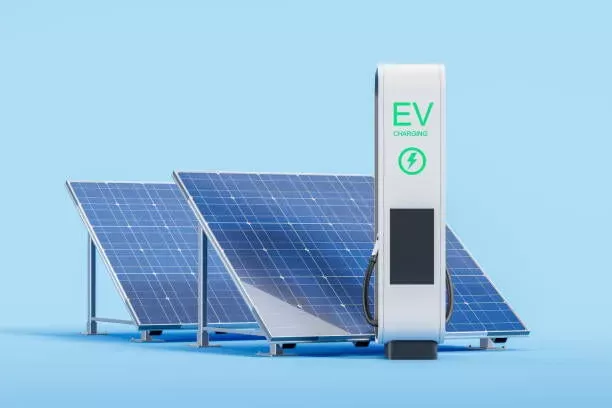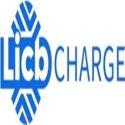Notifications

8 minutes, 36 seconds
-8 Views 0 Comments 0 Likes 0 Reviews

As a leading EV charger manufacturer in China, LiCB Charge delivers reliable AC and DC electric vehicle charging stations along with comprehensive charging solutions.
As the world races toward a cleaner, more sustainable future, the convergence of solar energy and electric vehicles (EVs) is transforming how we think about transportation. Solar EV charging — the practice of powering electric cars using energy harnessed from the sun — offers a powerful combination of clean energy generation and emission-free driving. With global EV adoption on the rise and climate concerns intensifying, solar-powered charging is emerging as a crucial innovation in the transition to net-zero carbon emissions.
This green solution reduces dependence on fossil fuels, slashes greenhouse gas emissions, and offers the added benefit of long-term cost savings. But how exactly does it work, and what do EV owners need to know to take full advantage of solar charging at home?
Solar EV charging, also called photovoltaic (PV) EV charging, is the process of using solar panels to convert sunlight into electricity, which then charges an electric vehicle. It merges two clean technologies — solar power generation and electric mobility — into a seamless system for reducing environmental impact.
Typically, a solar panel system is installed on your rooftop or property and connected to your home energy system, integrated with an EV charger. Electricity generated during the day either charges your vehicle directly or is stored in a battery for later use, such as nighttime charging.
By opting for solar charging, EV drivers lower their carbon footprint and protect themselves against volatile utility rates and rising fuel costs. This self-sufficient energy model blends environmental responsibility with energy independence.
Charging an EV at home with solar energy is becoming increasingly convenient and cost-effective. However, efficiency depends on several factors:
Solar System Size
Residential solar systems usually range from 5 kW to 15 kW. Larger systems generate more electricity, allowing you to cover household consumption and EV charging needs.
Charger Type
Level 1 chargers (around 2 kW) can take over 24 hours to charge a vehicle fully. Level 2 chargers (7 kW to 22 kW) recharge most EVs within a few hours, making them ideal for solar setups during peak sunlight.
Time of Day and Weather
Solar charging is most effective during midday when sunlight is strongest. Overcast conditions or seasonal changes can reduce production, which is why many homeowners add battery storage to save excess energy for nighttime.
EV Battery Size and Usage
Your vehicle’s battery capacity and driving habits determine how much solar energy you need. Long daily commutes require more energy replenishment than shorter drives.
Smart Charging Technology
Advanced chargers can optimize when and how much power your EV consumes based on solar availability. Some even allow your vehicle to charge only when excess solar power is available, reducing grid dependence.
Consider a 7 kW solar system paired with a typical EV that consumes about 30 kWh per 100 miles. On a sunny day, a 7 kW system can generate 28-35 kWh — enough to drive 90–110 miles if all power goes toward charging.
Since homes also use electricity for other needs, balancing total energy production and consumption is key. Home battery storage can maximize your solar investment by storing surplus energy for later use.
One of the biggest advantages of solar EV charging is long-term savings on energy costs. Charging from the grid can be costly, especially at public stations.
The average U.S. EV driver uses about 408 kWh per month, costing roughly $66 at the national average of $0.16 per kWh. Public chargers often cost more — $0.30 or higher per kWh — pushing monthly costs up to $120–$165 or more.
Solar charging lets you lock in energy costs for 20–25 years — the typical lifespan of solar panels. Though the initial investment is significant, government incentives and tax credits can shorten the payback period.
Many utilities use Time-of-Use (TOU) pricing, charging less during off-peak hours. Smart solar chargers can capitalize on this by scheduling charging during high solar output or low-cost electricity periods.
Some systems support vehicle-to-home (V2H) or vehicle-to-grid (V2G) functions, allowing your EV to power your home or feed excess energy back to the grid — further lowering bills.
Solar EV charging isn’t just about saving money — it’s a crucial step in fighting climate change. Gasoline vehicles emit about 4.6 metric tons of CO₂ yearly, whereas EVs charged with solar power produce near-zero emissions.
Even grid-charged EVs generate a smaller carbon footprint than gas cars. Solar-powered charging eliminates emissions during charging altogether, making transportation truly sustainable.
Upfront Costs: Installation can be expensive, but federal and local incentives help offset expenses.
Solar Intermittency: Solar energy depends on weather and daylight, requiring battery storage or hybrid solar-grid systems for reliability.
System Integration: Proper sizing and compatibility need professional design and installation.
The solar EV charging market is poised for rapid growth. Advances in battery and solar panel technology, combined with growing EV adoption, will drive more integrated home and business charging systems.
Innovations like solar carports, portable solar chargers, and bidirectional charging will enhance flexibility and efficiency. Smart grids will enable dynamic energy management between homes, vehicles, and utilities.
Governments worldwide are supporting this green shift with incentives and infrastructure investments, accelerating the transition to solar-powered mobility.
Solar EV charging represents the future of sustainable transportation — where cars are powered not by fossil fuels, but by the limitless energy of the sun. By harnessing solar power, EV owners reduce environmental impact, gain energy independence, and save on fueling costs.
Whether you're a homeowner exploring rooftop solar or an EV enthusiast optimizing your charging, the benefits of solar EV charging are clear. As technology evolves and adoption grows, this powerful combination is set to revolutionize how we drive — cleanly, efficiently, and responsibly.Know more about Google SEO Directory
China EV Chargers EV Charger Manufacturer Smart EV Chargers Electric Car Chargers Electric Vehicle Chargers Electric Car Charging Stations

